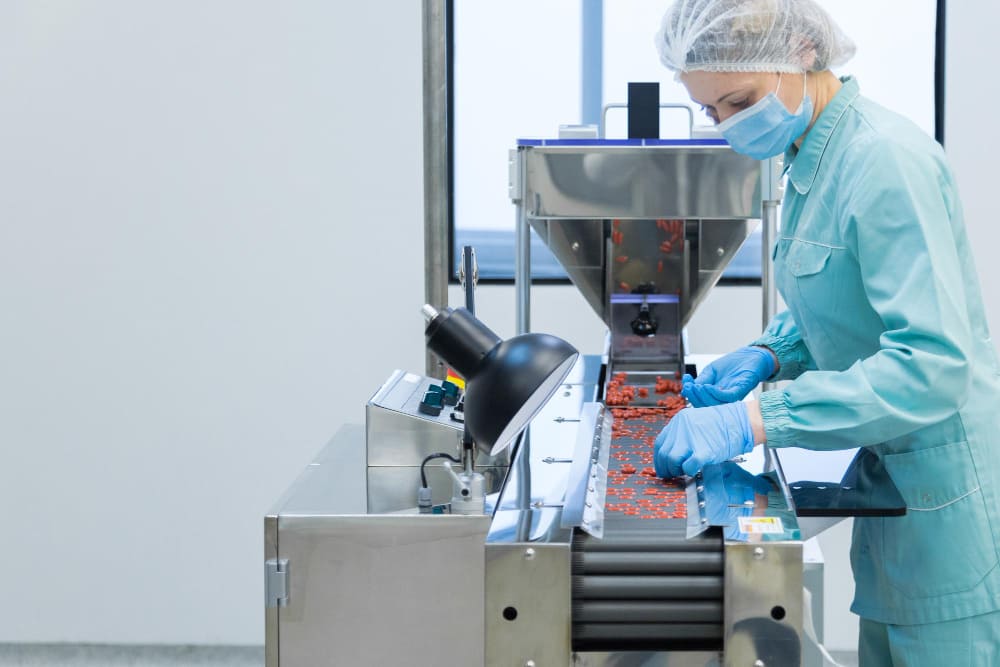Good Manufacturing Practices (GMP) are a critical aspect of the pharmaceutical industry. They ensure that products are consistently produced and controlled according to quality standards. By following GMP manufacturing, companies can minimize the risks involved in pharmaceutical production, ensuring the efficacy and safety of their products. Whether it’s the production of vaccines or everyday medications, GMP plays an essential role in maintaining public health and trust in pharmaceutical products.
In an industry where precision and consistency are paramount, GMP is the backbone of quality assurance. The meticulous standards GMP sets cover every aspect of production, from the raw materials used to the conditions under which products are manufactured, packaged, and stored. This comprehensive approach helps prevent errors and ensures that every batch of pharmaceuticals meets the stringent criteria to guarantee patient safety and product effectiveness.
The Importance of GMP
Implementing GMP is vital for maintaining the quality and safety of pharmaceutical products. According to the World Health Organization, adherence to GMP helps to ensure that drugs are produced consistently. Hence, they meet quality standards appropriate for their intended use. Non-compliance can lead to severe consequences, including product recalls, legal penalties, and even patient harm. Thus, GMP compliance is a regulatory requirement and a moral obligation for pharmaceutical companies.
The significance of GMP extends beyond regulatory compliance. It fosters a culture of continuous improvement within manufacturing facilities, encouraging a proactive approach to problem-solving and quality control. By investing in GMP, companies can avoid costly disruptions, such as contaminated products or failed inspections, which can damage reputations and financial stability. Ultimately, GMP is essential for sustaining the credibility and trustworthiness of pharmaceutical companies in the eyes of consumers and regulatory bodies alike.
Key Components of GMP
Quality Management
Quality management ensures a comprehensive system that maintains product quality through checks and balances. It involves rigorous testing, stringent processes, and meticulous documentation. Quality management systems (QMS) are designed to monitor and improve every aspect of the manufacturing process, from initial formulation to final product release. These systems help identify potential issues before they become critical problems, ensuring that each product meets the highest safety and efficacy standards.
Sanitation and Hygiene
Sanitation and hygiene cover the cleanliness and hygiene of facilities and personnel. This aspect of GMP involves regular cleaning schedules, proper waste disposal, and strict personal hygiene protocols for staff. By maintaining a clean and hygienic environment, companies can minimize the risk of contamination, ensuring that products remain pure and effective. This component also includes measures such as air filtration systems and pest control to uphold the highest standards of cleanliness.
Building and Facilities
Building and facilities involve properly designing, constructing, and maintaining production facilities. This aspect is crucial to prevent contamination and ensure smooth operations. Facilities must be designed to allow for easy cleaning and maintenance, and they should be regularly inspected to ensure ongoing compliance with GMP standards. Proper facility design also includes:
- Considerations for workflow efficiency.
- Minimizing the risk of cross-contamination.
- Ensuring that each stage of the manufacturing process is adequately segregated.
Equipment
Equipment ensures that machines and devices used in production are calibrated and maintained regularly. Well-maintained equipment operates efficiently and produces high-quality products. Regular maintenance and calibration of equipment are essential to prevent malfunctions and ensure consistent production. This includes everything from large-scale manufacturing machinery to smaller tools used in the lab. Proper equipment maintenance also involves thorough documentation to track the history of usage, maintenance, and any repairs performed, which is critical for traceability and accountability.
Materials
Materials focus on the quality of raw materials used in production. Only high-quality materials can ensure the final product’s safety and effectiveness. This component of GMP involves stringent supplier qualification processes, regular testing of raw materials, and meticulous record-keeping. By ensuring that all materials meet specified quality criteria, companies can prevent the introduction of contaminants or substandard ingredients, thereby safeguarding the integrity of the final product.
Documentation
Documentation is critical to ensure traceability and accountability. Every step of the production process must be documented to verify compliance with GMP standards. Comprehensive documentation helps track a product’s entire lifecycle, from raw material sourcing to final distribution. This level of detail is essential for identifying the root cause of any issues and demonstrating compliance during inspections. Proper documentation also facilitates continuous improvement by providing a clear record of what has been done and what can be improved in future production cycles.
Challenges in Implementing GMP
Implementing GMP can be challenging. Companies often face hurdles such as high costs, complex regulatory requirements, and the need for continuous training. The initial investment in GMP-compliant facilities, equipment, and personnel training can be substantial. The ongoing costs of maintaining GMP standards, such as regular audits and procedure updates, can strain resources. However, these investments are necessary to ensure pharmaceutical operations’ long-term success and sustainability.
Another significant challenge is adapting to the ever-evolving regulatory landscape. Pharmaceutical companies must stay informed about changes in GMP regulations and be prepared to update their practices accordingly. This requires a dedicated regulatory affairs team and a commitment to continuous education and training for all staff members. Despite these challenges, the benefits of GMP far outweigh the difficulties, making it an indispensable aspect of pharmaceutical manufacturing.
Benefits of Adopting GMP
Despite the challenges, the benefits of GMP adoption are significant. They include enhanced product quality, increased consumer trust, and reduced risk of product recalls. According to a report by the FDA, companies that adhere to GMP also see improvements in operational efficiency and overall market competitiveness. By ensuring consistent quality and safety, GMP helps build a strong reputation for reliability and excellence, which is critical in the highly competitive pharmaceutical industry.
Moreover, GMP compliance can open doors to new markets. Many countries require GMP certification for imported pharmaceutical products, so adhering to these standards is essential for international expansion.
The Future of GMP in Pharmaceuticals
As technology advances, the future of GMP in the pharmaceutical industry looks promising. Emerging technologies such as AI and automation are poised to streamline GMP processes, making them more efficient and cost-effective. Companies that stay ahead of these trends will likely see substantial benefits. AI, for instance, can help with predictive equipment maintenance, ensuring they operate optimally and reducing downtime. Automation can enhance consistency and precision in production, minimizing human error and improving overall product quality.
Final Thoughts
Good Manufacturing Practices are indispensable to the pharmaceutical industry. They ensure the safety and efficacy of products, thereby protecting public health. As the industry evolves, companies prioritizing GMP will be better positioned to thrive in a competitive market. Quality assurance at every stage is a regulatory requirement and a cornerstone of pharmaceutical excellence. The future of GMP is undoubtedly bright, driven by technological advancements and a steadfast commitment to quality and safety.




